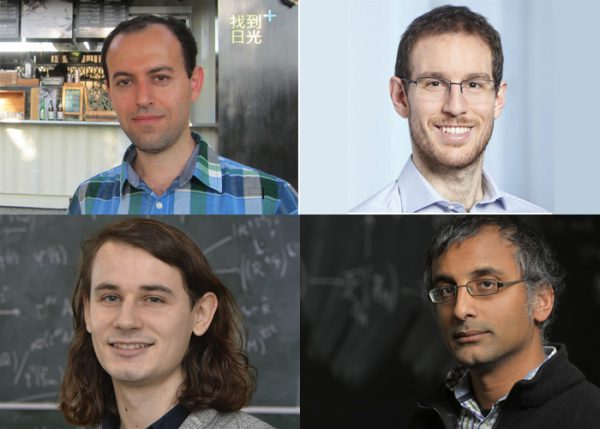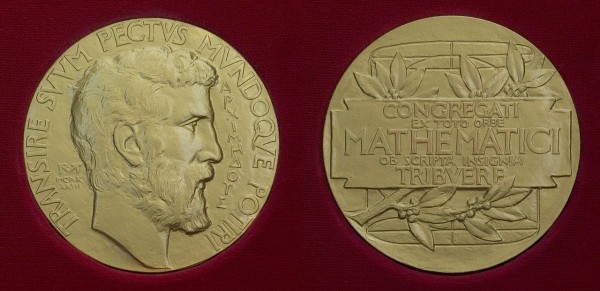“A lot of the time, when you do Math, you’re stuck. But you feel privileged to work with it. You have a feeling of transcendence and feel like you’ve been part of something really meaningful.” – Akshay Venkatesh, 2018 Fields Medallist.
The Fields Medal is awarded every four years to four mathematicians, in recognition of outstanding achievement in mathematics. This year’s winners have just been announced at the International Congress of Mathematicians in Rio de Janeiro, and they are algebraic geometer Caucher Birkar, PDE specialist Alessio Figalli, arithmetic algebraic geometer Peter Scholze, and number theorist Akshay Venkatesh.
“There are an infinite number of problems. Whenever you solve a problem, there are 10 more coming.”
The entire ceremony was live streamed on the ICM YouTube account, but we’ve picked out the highlights you can watch using the links below – each winner was introduced using a beautifully made and personal video about their life and work, which made CP get a bit emosh:
- Birkar intro video and medal awarded
- Figalli intro video and medal awarded
- Scholze intro video and medal awarded
- Venkatesh intro video and medal awarded
“I’m hoping that this news will put a smile on the faces of those 40 million people”
To read more about this year’s winners, this IMPA article outlining the four winners has a good description of each of their backgrounds, and Quanta has done individual profiles of Alessio Figalli, Ashkay Venkatesh, Peter Scholze and Caucher Birkar. You can also read each of their main papers on the arXiv:
- On existence of log minimal models (Caucher Birkar)
- $W^{2,1}$ regularity for solutions of the Monge-Ampère equation (Guido De Philippis, Alessio Figalli)
- Perfectoid Spaces (Peter Scholze)
- Sparse equidistribution problems, period bounds, and subconvexity (Ashkay Venkatesh)
In the last set of Fields Medals, the first ever medal was awarded to a female mathematician, Maryam Mirzakhani. This year, all four winners appear to be male. The IMU holds a satellite event called (WM)², the World Meeting for Women in Mathematics, which brings together mathematicians to think about and discuss gender issues in mathematics, its challenges, initiatives, and perspectives for the future.
“I have work for the next 30 or 40 years. But there is one problem I really hope to solve soon, that is me and my wife living in the same city.”

